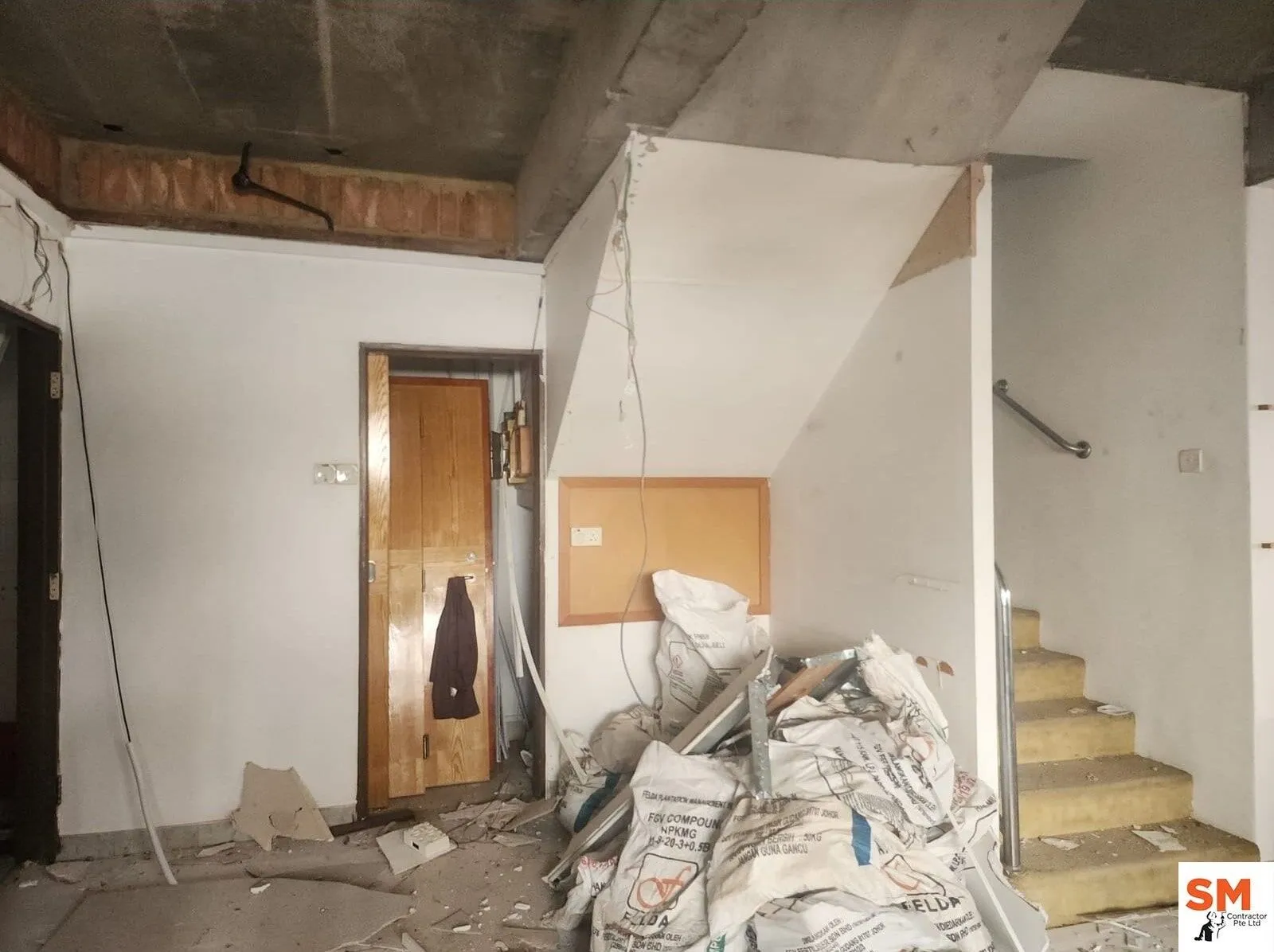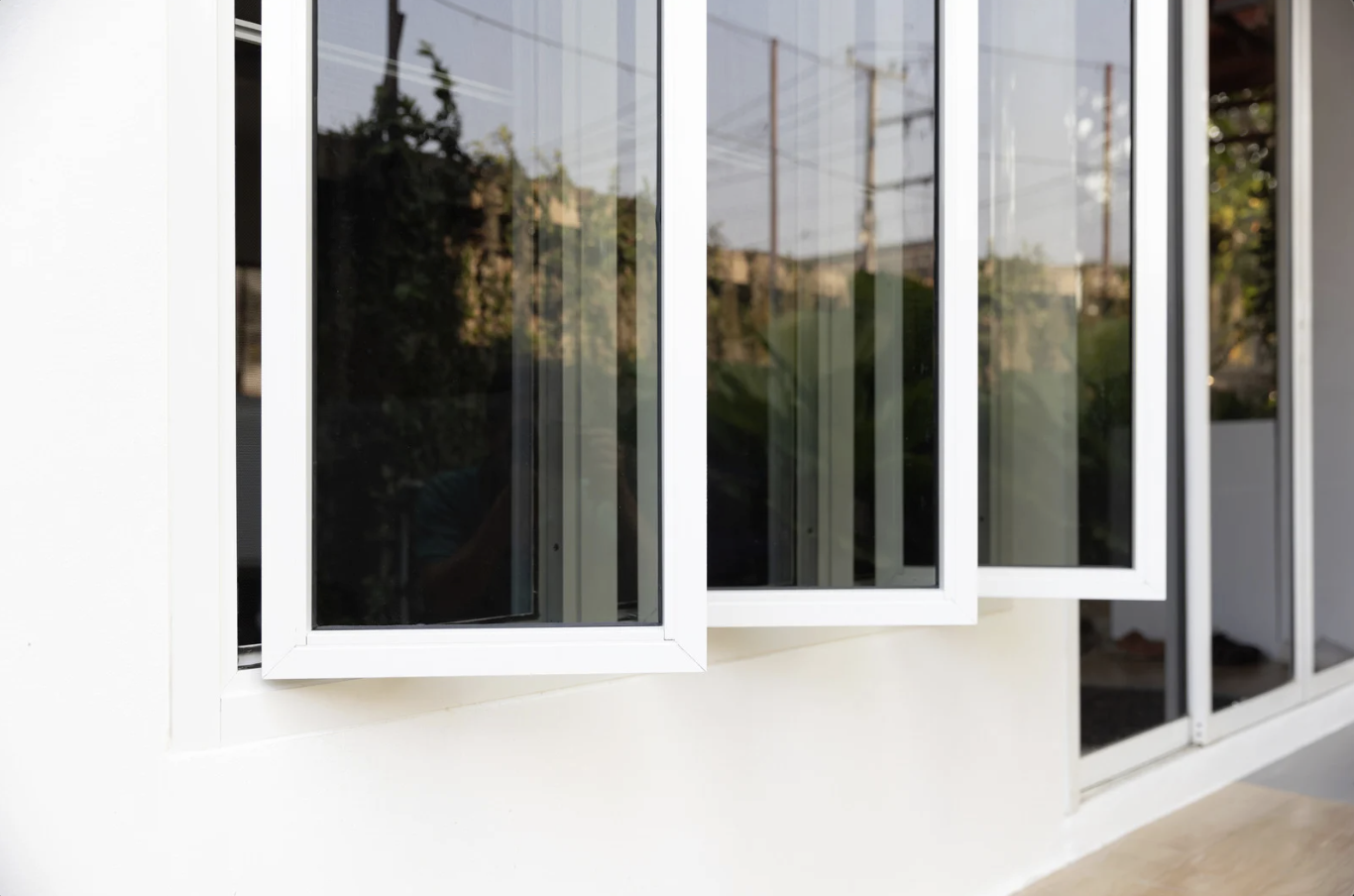Common Mistakes to Avoid During Demolition and Hacking Works

Demolition and hacking projects may seem very simple on the surface, but it is more than just tearing things down. These activities are quite important in every construction or renovation project. Whether breaking down walls to expand a space or removing old materials to give way to new ones, demolition and hacking are foundational activities that ought to be well-planned and executed.
The truth is that demolition requires much more thinking, planning, and caution than people realise. One slight mistake can be all it takes to create an accident, a delay, or additional costs. That’s why it is paramount to avoid common pitfalls in demolition that can lead to problems.
Whether you are hiring a contractor or doing the work yourself, it pays to know what to look out for. By avoiding these common mistakes, your project will stay on track, safe, and successful. Let’s go over some of the most frequent problems that can be encountered during demolition and how to avoid them.
What is demolition and hacking work?
Demolition is the breaking down of the whole building or major parts of a building, like walls and floors, to clear space either for new construction or renovation.
On the other hand, hacking involves the breaking, cutting, or chiselling away of relatively smaller parts from a structure. It would include, for example, removing old plaster from walls, breaking up concrete floors, and chiselling away tiles.
Mistakes Related to Planning
Planning is the actual backbone of any demolition or hacking project. What looks like an easy job can become a very costly and dangerous mistake if not planned out. The following are some commonly found mistakes regarding planning and how they can potentially affect your project.
Lack of a Comprehensive Demolition Plan
The most common mistake made is starting a project without a detailed plan. Without a clear plan, there might be major problems; for example, structural elements necessary for the integrity of the building could be destroyed. The idea is to know load-bearing and non-load-bearing walls so that no critical supports are compromised during the demolition. A well-articulated plan should project the scope of work, how it is to be done, and when it is expected to be finished, thus limiting unforeseen complications.
Overlooking Environmental Hazards
Demolition sites are usually an environmental hazard to workers and the community because of asbestos, lead paint, and other toxic materials that require special handling and disposal. The overlooking of these hazards may lead to severe health implications for workers and environmental contamination. An environmental assessment before the start of demolition work is essential to identify these risks and take effective mitigation measures. In addition, proper training on hazardous material handling and adherence to environmental concerns will create a much safer demolition process.
Underestimating Project Costs
Estimating the total costs of demolition and hacking projects requires great accuracy. Most people focus on the major tasks, like breaking walls or removing the structure, without factoring in other costs such as permits, labour, equipment, and waste management. The sad thing about overlooking this is that it could lead to projects being delayed due to a lack of sufficient funds to invest in, compromise on safety and quality to save time or money, and legal consequences if some important permissions are overlooked or some environmental clearance is neglected. For this reason, detailed cost analyses should be made well in advance, taking all probable costs into consideration and adding an escalation to cover unexpected expenses. Proper budgeting ensures that the project proceeds smoothly and that there are no financial surprises to shock one along the way.
Safety Oversights
Safety is always of paramount importance in demolition and hacking projects. Some critical safety mistakes and how to avoid them are highlighted below:
Ignoring Personal Protective Equipment (PPE)
One of the most critical safety oversights in demolition and hacking works is not taking personal protective equipment seriously. The nature of the work requires appropriate PPE provision for workers: hard hats, safety goggles, gloves, ear protection, and even respiratory masks. If these are not implemented properly, serious injuries might result due to falling debris, inhalation of dust or chemicals, or even dangers from using hazardous materials. It is necessary that every member of a team is trained in the use and maintenance of PPE for safety and health reasons on site.
Neglecting Utility Disconnections
No demolition work should start before utilities, including electricity, gas, water, and telecommunications, have been disconnected. Failure to do so may lead to hazardous incidents like electrocution, gas leakage, or flooding. Verification of the disconnection of utilities and liaison with utility companies should be included in a proper pre-demolition checklist to avoid potential risks during the demolition process.
Hiring Inexperienced Contractors
The right contractors are needed for any demolition or hacking job. While it may look cheap at the beginning to hire those who are less qualified, having unskilled professionals leads to bad work, projects that take more than was projected, and greater risks on the site. The wrong contractor may lack simple knowledge on safety matters or the right tools to deal with various obstacles like structural weaknesses or hazardous materials. For example, an incompetent contractor can demolish a supporting wall that may damage the entire structure. In order to evade such circumstances, one has to be very keen while selecting a contractor. This includes checking on their license, past projects, references, and approach towards certain safety and problem-solving aspects. Contracting skilled professionals like SM Contractor and Homees ensures high-quality results and a smooth project workflow.
Mistakes Related to Regulations
Understanding the most common regulatory mistakes and how to avoid them is key to keeping your project on track and stress-free. Let us explore some of these mistakes below and how you can avoid them.
Failure to Obtain Required Permits
Most demolitions require permits from governing authorities, particularly for major or structural jobs. Lack of attention to this may invite fines and even delays in your project. Therefore, one should always study the local building regulations and permissions required from every concerned authority before carrying out any type of work.
Overlooking Noise Restrictions
Noise is inevitable with demolition and hacking work; however, neglect of the local noise ordinances may possibly lead to community complaints or even fines and shutdowns of the project. There might be an area that has restrictions against noise at certain hours, like early morning or late evening, especially in residential zones. An inability to adhere to this may upset relations with neighbours and incur very expensive penalties. These issues can be avoided by scheduling noisy jobs during the allowed hours, using quieter equipment where possible, and also by keeping nearby residents informed about the project schedule.
Equipment-Related Errors
The right equipment is highly important in demolition and hacking projects for efficiency and safety. Let’s explore some of the most significant mistakes and how to avoid them.
Using Improper Tools for the Job
One of the most common equipment-related mistakes in demolition and hacking works is the use of improper tools for the job. Each demolition activity requires certain pieces of equipment or tools suited to efficiently accomplish the work with safety. Using a sledgehammer, for example, for a job calling for a wrecking ball, will only poorly accomplish demolition, and injury may occur. Every job should be judged and selected with the proper tools for accomplishing any work safely and proficiently.
Lack of Equipment Maintenance
Poor maintenance of the different tools may lead to malfunctioning, breakdowns, and other workplace hazards. Tools and other machines should be subjected to regular checking and maintenance for good working conditions. This may include wear and tear inspections, greasing and oiling of running parts, and replacing any damaged components beforehand to prevent failing during operation. A routine maintenance schedule not only prolongs the life of equipment but also significantly reduces the risk of accidents from faulty machinery.
Operating Machinery Without Proper Training
Operation of heavy machinery without prior training is a severe lack of concern that may result in very grievous consequences. Workers operating the machinery during demolition should be trained on the safe operation principles of all the machines. This includes correct machine handling, recognising potential hazards, and understanding what to do in case of emergencies. Thorough training and education programs offered regularly ensure operators are competent and confident in their own abilities and hence minimise accidents and injuries on site.
Tips to Avoid These Mistakes During Demolition and Hacking
The following are strategic practices that can help you avoid the mistakes mentioned earlier, reduce risks, and achieve the best results.
Conduct a Thorough Pre-Demolition Assessment
A thorough pre-demolition assessment is essential for identifying potential issues before work begins. This process involves evaluating the site to determine structural integrity, identifying hazardous materials, and assessing any environmental concerns. Engaging professionals to conduct this assessment can provide insights into necessary safety measures and compliance with local regulations. By understanding the specific challenges of the site, you can develop a comprehensive demolition plan that minimises risks and ensures a smoother execution.
Hiring Qualified Professionals
The importance of hiring the right team cannot be stressed enough. Expert and experienced contractors like SMC and Homees bring expertise, safety awareness, and the ability to navigate complex tasks. Less experienced professionals will be cheaper, but they may cause delays, safety hazards, and low-quality work. Hence, always check the credentials of your contractors and review their previous work to avoid this. Look for certifications, licenses, and insurance coverage to make sure they meet the industry standards.
It is equally important to discuss the project in as much detail as possible with potential contractors to understand their approach toward safety regulations, problem-solving, and how they deal with unexpected setbacks. This upfront investment in qualified professionals will pay off many times over through high-quality workmanship, fewer setbacks, and generally a smoother process.
Regular Supervision and Monitoring
Even with the best planning and most qualified professionals, regular supervision is essential if everything is to go as it should. In this respect, monitoring during the project will help detect problems well in advance. Regular monitoring may prevent accidents, ensure the use of proper tools and equipment, and ensure appropriate waste management.
In addition, it helps supervisors know whether the task is being executed to schedule and not over the available budget.
Conclusion
Demolition and hacking works are quite complex and involve a high level of risk. Hence, such jobs need critical planning and require skilled personnel and appropriate equipment. Being aware of these common pitfalls-that include cost underestimation, hiring contractors without experience in demolition, unsafe working conditions, not managing generated waste, or neglecting to follow noise restrictions—one will be in a better position to ensure that his project runs safely and smoothly.
In the end, taking the time to plan ahead, properly vet contractors, and follow best practices not only ensures a more efficient project but also reduces risks, keeps costs in check, and protects everyone involved. By following these steps, you’ll be well on your way to completing your demolition or hacking work successfully and with confidence.
Partner with the Best for Your Demolition and Hacking Projects
Hiring the right contractor for demolition and hacking work is important to the project’s seamless and successful completion. The right choice can save you from delays, unforeseen expenses, and safety concerns. This is where SMC and Homees stand out as the best solutions for your next project.
These contractors have an abiding commitment to excellence and come with vast experience in managing demolition and hacking works safely, efficiently, and within budget. Their teams are experienced at every level of the process, from planning to execution, and can help you avoid those pitfalls so commonly found that lead to costly mistakes. Whether you are dealing with a minor renovation or the biggest demolition project, these contractors have the skills, tools, and experience to overcome any obstacle with a lot of poise and confidence.
Contact SMC or Homees today to discuss your project in detail and get a no-obligation quote.










